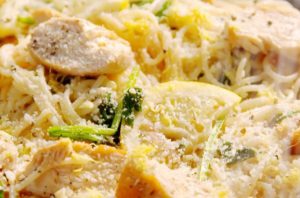Whether it’s an overpowering desire for a bag of crisps or the absolute need for a chocolate bar at 3pm, food cravings are a common experience.
Sometimes it’s just a case of a little of what you fancy, but if you have a reoccurring craving for a particular (usually unhealthy) food, it could be your body’s way of telling you something’s a little out of sync inside.
We’ve decoded some of the most common cravings, and what the secret message is about each:
1. Sugar and sweets
We all know there’s too much sugar in our diets, but when you’re desperate for a mid-morning doughnut just to get you through to lunch, it can be hard to understand why your body craves something your brain knows is bad for it.
Craving sweet things can be a sign of several things, which makes it tricky to know exactly what’s wrong.
“The more sweets you eat, the more you will crave them – it is a catch-22,” explains nutritionist Dr Marilyn Glenville, author of Natural Alternatives to Sugar.
She explains that when we eat, our blood sugar goes up and insulin is released. Following a sugar high, you get an energy crash and this rollercoaster leaves you feeling exhausted and craving your next sugar high. The best way to deal with this is to reduce your sugar intake, eat more vegetables (and some fruits for the natural sugars they contain), as well as meals and snacks that are higher in protein to give your body a slower, longer energy release.
If your diet’s generally healthy and you don’t binge on sugar, though, it could be a nutrient deficiency such as lack of zinc, magnesium or chromium that’s making you crave the sweet stuff. Taking a daily chromium supplement can help balance your insulin levels and keep the cravings at bay, and a multivitamin can even out deficiencies in your diet while you get your food back on track.
2. Chocolate
Whether it’s the sweet, milky kind, or ‘healthy’ dark, sometimes we just need a chocolate fix. Chocolate cravings also seem to be tied to menstruation, which is why women are often the biggest chocoholics.
But it can be a sign that you’re deficient in the mineral magnesium (which is a common deficiency in the UK). Rosanna explains magnesium is: “nature’s sedating hormone, essential for easing stress and anxiety, relaxing muscles, enabling energy production, building healthy bones and for proper heart function”.
As well as that, being deficient can affect your sleep, making you tired and causing you to reach for sweets and chocolate to perk yourself up – another catch-22.
Rosanna recommends adding raw cacao powder to your diet (smoothie-style rather than a brownie, sorry!) to help boost your mineral levels, and avoid the sweet, refined chocolate bars with low levels of cocoa in.
3. Carbs – bread, pasta, potatoes
It’s totally normal to sometimes fancy chowing down on big ol’ bowl of spaghetti, but if your body’s crying out for carbs on the reg, there might be a deeper reason for it.
There’s some evidence to suggest carbs help us combat emotional issues. In other words – comfort eating.
But if you’re not stressed or emotional, carb cravings can suggest that you’re not getting enough – or good enough – sleep.
According to Lindsey Smith, author of Eat Your Feelings: The Food Mood Girl’s Guide to Transforming Your Emotional Eating, if your body’s tired it wants a quick hit of energy, which the glucose in carbs provides, because it’s easier to use than the energy provided by sources such as protein and fat.
Beat the carb cravings with gentle exercise, fuelling your body with good fats and lean protein, assess your emotions and work on any stressors that are affecting how you feel. And vitally, get some good quality shut eye (that means leaving your phone in the other room!).
4. Cheese
Who doesn’t crave a nice hunk of mature cheddar every now and again? But if it’s more than an occasional desire, it could be a sign that you don’t have enough fat in your diet. Women especially need fats to help our bodies work. We have a higher natural body fat ratio than men, and our hormones need more healthy fats to work properly.
Cheese isn’t necessarily a problem – it’s a source of calcium after all – but too much of it can be unhealthy, so aim to replace it with good fats from avocado, coconut or olive oil, nuts and seeds, eggs and quality fish or meat, if you eat those.
5. Red meat
Vegetarians look away now – red meat is a common craving when you’re low in iron. It’s also the only food source of essential vitamin B12, so if you don’t eat meat, or you’re craving it, try supplementing with a gentle iron and B12 drops or a B-complex.
Nutritionist Cassandra Burns suggests eating red meat once a week, especially if you’re noticing other deficiency signs such as fatigue. She explains: “In recent years many people have been reducing meat in their diets, which is a main cause of iron deficiency. It’s important for the immune system and helps to transport oxygen throughout the body, without which we’ll feel tired.”
Speak to your GP or a nutritionist about how to get more iron on a vegetarian diet, and consider supplements to get yourself back up to healthy levels.
6. Salty foods
This one’s kind of obvious – your body is craving sodium. This could mean you’re dehydrated, especially if it’s after exercise, on a hangover, or if you haven’t drunk enough water. But instead of reaching for the ready salted, make sure you drink lots of water to rehydrate, and go for lightly salted popcorn, olives, anchovies and other naturally-salty sources. Cooking with unrefined sea or Himalayan salt can help too.
7. Tea and coffee
We’re a nation of hot drink lovers, just ask our poor dentists. But there’s a difference between gasping for a nice cup of builder’s tea when you’ve had a busy morning, and craving a super strong coffee on the hour every hour.
If you’re a regular caffeine drinker, it could be that you’re physically addicted to the stuff, and if you go without you feel lethargic and get a bad headache from the withdrawal.
Rosanna suggests it could also be a deficiency of phosphorus – a trace element that’s important to the body for processing calcium. She recommends plenty of nuts and seeds to boost your levels.
8. Fatty or fried foods
If fish’n’chips Friday is turning into a daily affair, it’s time to look at your diet.
Rosanna explains rather though fatty foods are often our comfort foods, and are linked to making us feel better when we’re sad, craving them could also mean you’re lacking essential fatty acids in your body, such as omega-3 and omega-6. You can get these from oily fish, as well nuts and seeds, so try snacking on them instead of chips when you get the urge.
That being said we usually take a break one day of the weekend to deal with our food craving of the week. Below you’ll find our top food cravings this week. What’s yours?
Source Cosmopolitan





